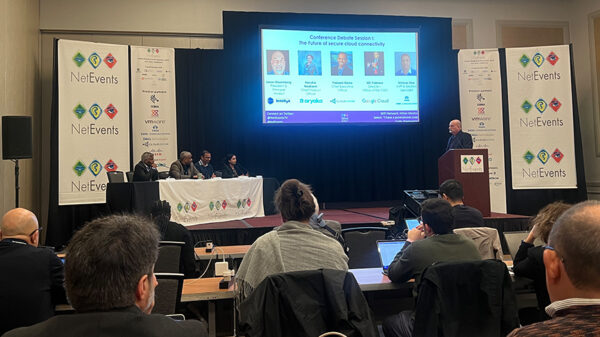
Survey respondents selected mobile, cloud, and biometrics (gesture/facial/voice) as the top three technologies that will enable the next indispensable consumer technology in the next three years. (Artwork by Janis Dei Abad)
Cloud and mobile are expected to continue to gain momentum as the most disruptive technologies in consumer and business markets over the next three years, according to the Global Technology Innovation survey from KPMG International.
The technology leaders also expect biometrics and data and analytics (big data) technologies to develop as key breakthrough technologies.
KPMG surveyed 811 technology business leaders globally from technology industry startups, mid-sized to large enterprises, venture capital firms and angel investors in order to identify disruptive technologies, innovation trends and the scope of change.
“Continuing developments in cloud and mobile, and the interplay of these technologies, is enabling new business models that take advantage of economies of scale, provide virtual access to supply chains and allow physical products to operate in the Cloud. The survey findings indicate that tech leaders are bullish on the power of these technologies to continue to fuel innovation in coming years and drive disruption in many industries,” said Gary Matuszak, global chair, KPMG’s Technology, Media and Telecommunications practice and a partner with KPMG in the US. “At the same time, the ongoing emergence of other technologies such as biometrics and artificial intelligence prompts innovation opportunities in the next three to four years that we cannot imagine today.”
Survey respondents selected mobile, cloud, and biometrics (gesture/facial/voice) as the top three technologies that will enable the next indispensable consumer technology in the next three years. Asked which technologies would drive business transformation for enterprises, technology leaders selected cloud, mobile and data and analytics as having the greatest impact. However, in China, tech leaders differed from the global view in two ways.
“China’s tech leaders placed artificial intelligence third, ahead of data and analytics as a business transformation driver, and they ranked cloud ahead of mobile as the top choice to enable consumer technology,” said Richard Hanley, Advisory Leader, KPMG in the US’s Technology, Media and Telecommunications practice. “China’s tech leaders believe that mobile innovation has advanced far enough, and much quicker than other regions of the world, that they are now turning a greater amount of their focus to cloud.”
Factors fostering innovation: Importance vs. accessibility
KPMG surveyed tech leaders on a number of topics, including which factors are most important to fostering innovation. More than three-fourths of them said that the availability of talent is the most important factor enabling technology innovation, followed by access to technology infrastructure (69 percent), ability to drive customer adoption (68 percent) and access to capital (66 percent). But not all countries cited talent as the top factor. Innovation incentives were among the top two most important factors in India (tied for first with infrastructure), Israel (tied for first with talent) and China (second most important). Yet, when asked how accessible are innovation incentives at the respondent’s company, 82 percent of those in large enterprise and mid-market companies in India said they were accessible, 64 percent in Israel and 60 percent in China.
Marissa Mayer joins list of visionaries
More survey respondents cited Bill Gates followed by Steve Jobs as the leading global innovation visionaries, even though these two visionaries founded their companies years ago and are no longer leaders in their respective companies. Larry Page and Elon Musk tied for third. Marissa Mayer joined the list as the only woman among the 19 visionaries identified worldwide. Google was identified as the top company driving disruptive innovation followed by Apple, Microsoft and Samsung, according to the survey.



















































































































